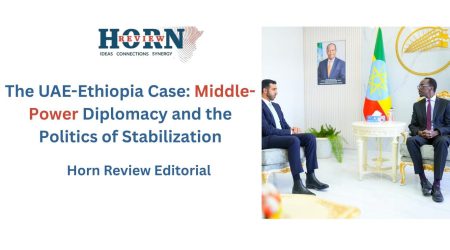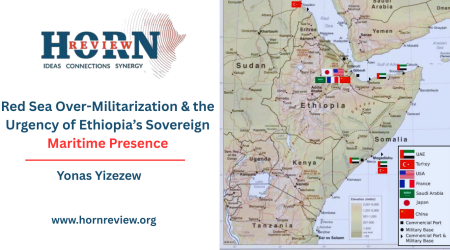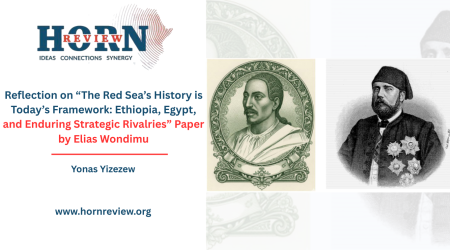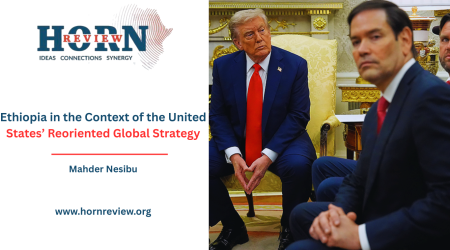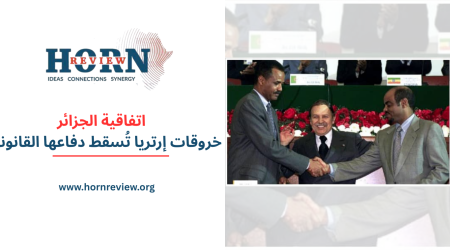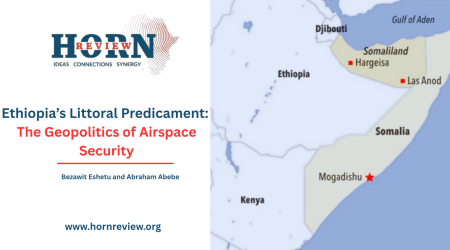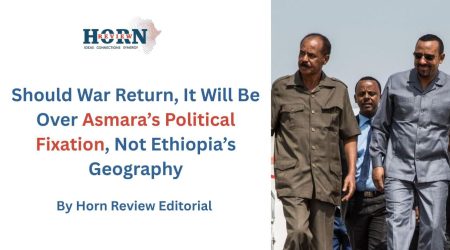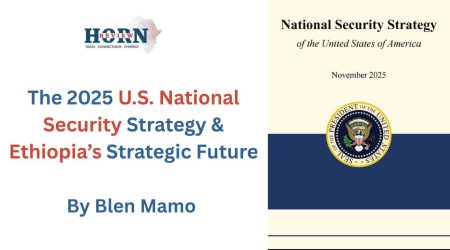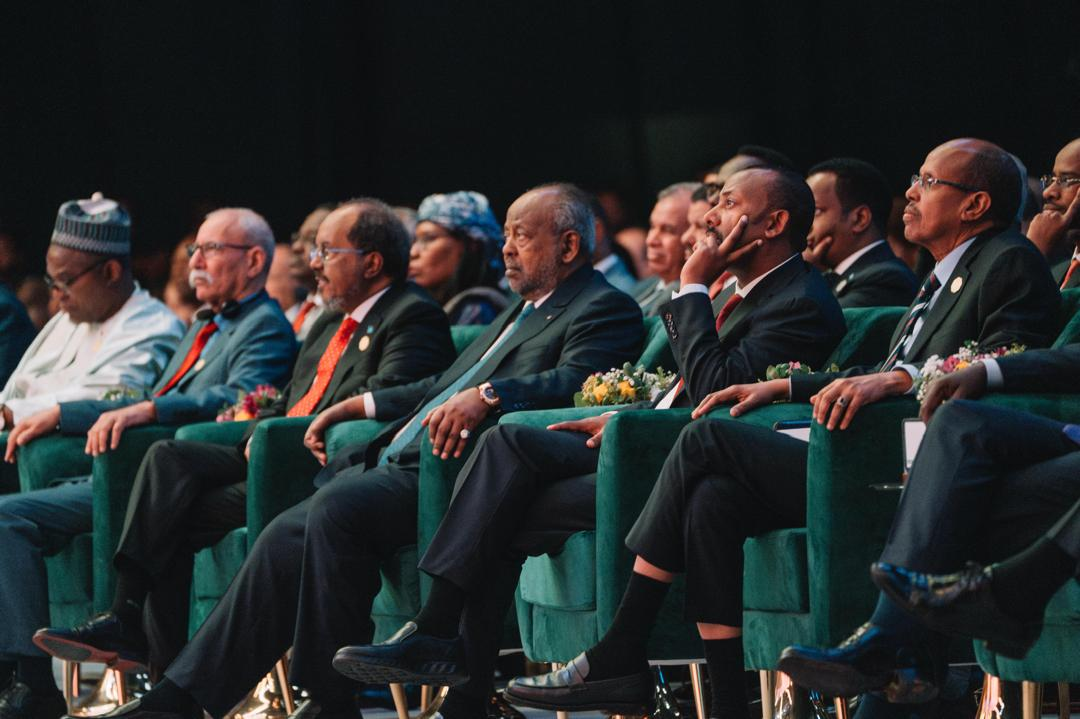
6
Oct
Ethiopia’s Power Framework: Regional Integration, Not Rivalry
A region of immense strategic importance and also of perpetual wars, conflict states, and insurgency, inextricably connected, is the Horn of Africa we are living in. In the course of such rich history, Ethiopia takes the lead as an exemplary prime mover of change, an inspiration of change in governance, technological progress, and regional integration. All these, its adoption of the eVisa program and its massive dam projects like the Grand Ethiopian Renaissance Dam (GERD) and its recently signed development with Russia with an eye toward the pursuit of nuclear energy, are a vision for change that may support peace and prosperity beyond Ethiopia. But such success demands a positive regional response. The other nations, Egypt and Eritrea included, and the others in the Horn have to make up their minds to collaborate with Ethiopia in its development, as it is a part of development in the region.
Ethiopia’s legacy as a symbol of inspiration to African independence, having fought colonialism successfully and turned it into a source of strength and sovereignty. This mark gives Ethiopia additional potential to forge a path forward on the foundation of modernization and cooperation. Its adoption of digital tools like the eVisa system facilitates easier cross-border movement, trade, and diplomacy foundation for regional integration. Somalia’s recent step to introduce eVisa, following Ethiopia’s lead, reflects this potential for shared progress. Rather than competing or working in isolation.
Regional development is a shared opportunity, not a cutthroat contest for dominance. Opposition or subjugation and containment initiatives have the potential to backfire horrifyingly, making a future regional symbol a shared liability. Past and current dynamics of the Horn reveal a brutal, yet frequently underrated fact: no country’s failure here in this connected region goes unnoticed. Instead, it metastasizes beyond borders, causing refugee streams, increasing terrorism, and insurgents spreading, all of which are expensive liabilities against neighbors.
History can show that the Somali Civil War result of clan rebellions, ethnic fragmentation, and Cold War proliferation of weapons, is an extreme failure of the central state, whereby authority collapsed into warlordism and Islamist extremism, leading to the rise. Burdening neighbors, Ethiopia endured cross-border raids and refugee flows of over 500,000 Somalis, fueling regional ethnic tensions as well as requiring military intervention that cost billions and contributed to regional insurgency. Kenya hosted 600,000+ refugees in Dadaab camp, Djibouti and Yemen were interrupted by sea piracy, increasing the costs of trade by 10–20%, while the broader Horn of Africa saw over $50 billion in economic loss as a result of suspended trade and diversion of aid. This figure shows how Somalia’s failure export stability, sustains the value of stabilizing anchors like Ethiopia
Another recent example is Sudan. Its long-standing domestic conflict and political instability have spawned waves of armed opposition and refugees spilling over into its neighbors and spreading instability into the Horn and beyond. Sudan’s fragility is now a regional concern, demonstrating how instability in one country is insecurity for all. In this sense, Ethiopia’s success or failure takes on disproportionate regional significance. Ethiopia is the Horn’s most populous country and has been a pillar historically, politically, and economically.
Its latest efforts in the area of electronic governance through embracing the eVisa, upgrading the infrastructure, hydroelectric power through GERD, and pursuing peaceful nuclear energy make it a promising area for integration and stability. If Ethiopia can continue along this path of development, it could set off economic growth and peace in the Horn, reducing the underlying causes of war and refugee outflow. Alternatively, resistance or attempts by its neighbors to take back the reins or slow down or derail Ethiopia’s development, either through competition, suspicion, or strategic calculation, would be self-destructive and myopic.
Egypt and Eritrea, for instance, sometimes complained or whined over Ethiopia’s actions in the region, particularly GERD. Persistent acts of obstruction or attempts to overstep Ethiopia’s sovereignty risk destabilizing the entire region. Subversion of Ethiopian development would increase border tensions, foster insurgencies, and induce refugee flows that by definition affect these same states as spillover burdens. Cut-backs in aid to Ethiopia are thus not a political option but a strategic necessity for the whole Horn. Practically, this means Egypt, Eritrea, Sudan, Somalia, Djibouti, and the rest ought to be positively engaging through diplomacy, investing in jointly mandated infrastructure, and adopting cooperation in electronic visa systems, power sharing, and commerce.
Somalia’s embrace of the eVisa after Ethiopia illustrates that regional governments can harmonize policies to expand mobility and engagement, building greater trust and interdependence. Furthermore, the possibility of GERD as a regional energy resource is a defining reminder of mutually enhancing cooperation. Rather than viewing GERD as a zero-sum threat, Egypt and other downstream nations can potentially make fair deals that provide their water security and support Ethiopia’s development as well as the greater regional energy system.
This shared agenda makes competition a foundation for regional integration and conflict prevention. If the nations of the Horn unite in solidarity, taking Ethiopia’s leadership as an example and as a partner, together they can tackle overwhelming challenges: poverty, displacement, terrorism, and political instability. The price of failure is too high and interconnected for one nation to afford or ignore. History in the Horn repeatedly demonstrates that attempts to destabilize one country inevitably result in additional destabilization.
Ethiopia’s development and stability, nonetheless, have beneficial spillovers that reduce conflict drivers and enhance prospects for peace. Briefly, the future of the Horn of Africa is dependent on a core principle that stability and development within a single country are crucial for the security and well-being of the whole region. Ethiopia’s revolution of transformation through technological innovations such as eVisa, strategic infrastructure such as GERD, and technological innovations is a window into the future. Border nations, Egypt and Eritrea, need to understand that collaboration, and not aggression, is the way to avoid mutual threats of insecurity, terrorism, and mass displacement. Together with Ethiopia is not only a moral obligation but also a strategic imperative to construct a safer, interconnected, and more resilient Horn of Africa. The fate that is shared in this region requires change together or pay the stunning price of separate failure.
By Rebecca Mulugeta, Researcher, Horn Review

